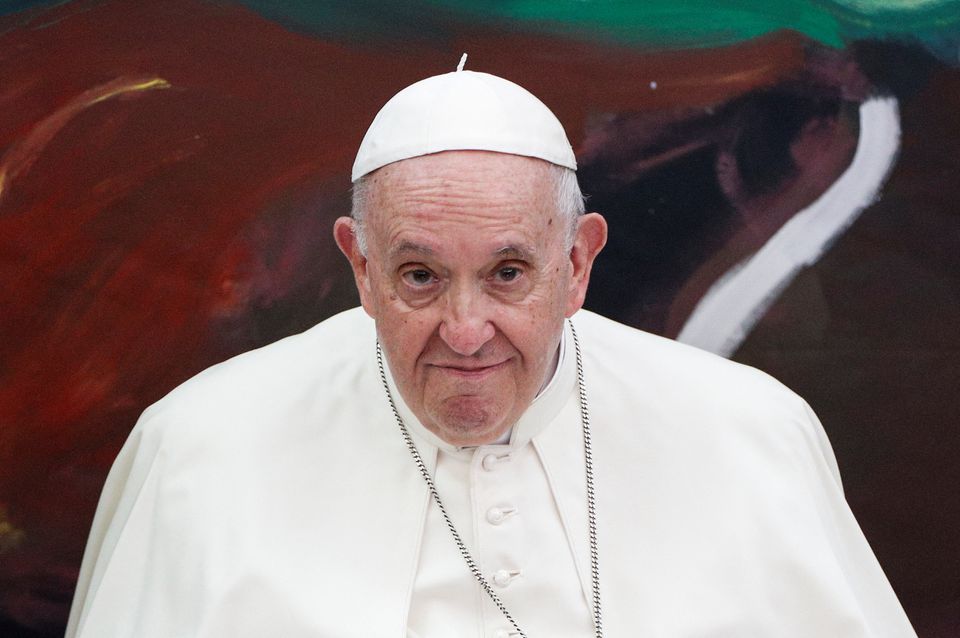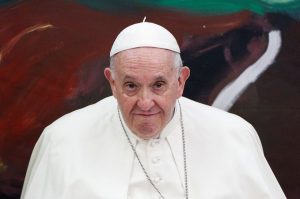
Pope Francis announced on Sunday that he would appoint 21 new cardinals, including one based in Mongolia, as he again put his stamp on the Roman Catholic Church’s future by elevating more men from the developing world to the high rank.
Sixteen are cardinal electors under 80 and eligible to enter a conclave to elect his successor from among themselves after his death or resignation. Eleven of the electors are from, or based in, countries outside Europe or North America.
Cardinals rank second only to the pope in the Church hierarchy and serve as his closest advisors at home and around the world. Due to their historical power and influence, they are still called the Princes of the Church, although Francis has told them not to live like royalty and to be close to the poor.
One significant appointment in the rich world was that of Bishop Robert McElroy of San Diego, California, seen as a progressive. By giving San Diego its first cardinal, Francis bypassed conservative archbishops in the larger cities of San Francisco and Los Angeles.
McElroy has been an outspoken ally of Francis’ pastoral approach in issues such as protection of the environment and a more welcoming approach to gay Catholics.
He also has opposed conservative U.S. Churchmen who want to ban Catholic politicians from receiving communion because of their support of abortion rights.
After the Aug. 27 ceremony to officially install them, known as a consistory, Francis will have appointed about 82 of the some 132 cardinal electors, increasing the possibility that his successor will be a man reflecting his positions on key issues.
By then the first pope from Latin America will have appointed about 63% of cardinal electors, further increasing their presence in the developing world, and again loosening the grip Europe had for centuries on the College of Cardinals.
It will be the eighth consistory since Francis, 85, was elected in 2013 and with each he has continued what one diplomat on Sunday called “a tilt towards Asia,” increasing the likelihood that the next pope could be from the region.
By appointing cardinals in Singapore, Mongolia, India and East Timor, Francis appears to be seeking to increase the Church’s prestige and clout in Asia, a growing economic and political powerhouse.
Francis made the surprise announcement after his Sunday noon blessing to thousands of people in St. Peter’s Square.
FEW CATHOLICS BUT STRATEGIC LOCATION
The new electors include Archbishop Giorgio Marengo, an Italian who is currently the Catholic Church’s administrator in Mongolia.
The country has fewer than 1,500 Catholics but is strategically significant because it borders with China, where the Vatican is trying to improve the situation for Catholics in the communist country. At 48, he is the youngest of the new cardinal electors.
Other cardinal electors come from France, Nigeria, Brazil, India, the United States, East Timor, Italy, Ghana, Singapore, and Paraguay. Three Vatican officials to be made cardinals in August come from South Korea, Britain and Spain.
Once again, Francis passed over archbishops of major cities in Europe and the Americas that traditionally had cardinals before his election in 2013, preferring to appoint men in far-flung places where the Church is small or growing and more vibrant than in Europe.
New cardinals from other developing countries include archbishops in Ekwulobia in Nigeria, Manaus and Brasilia in Brazil, Goa and Hyderabad in India, Wa in Ghana, and Asuncion in Paraguay.


Leave a Reply